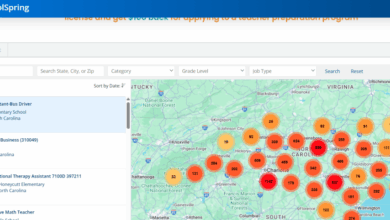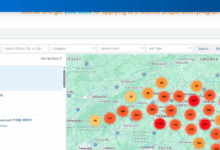Can Remote Degrees Teach the Soft Skills Today’s Careers Demand? – EDTECH 4 BEGINNERS
The rise of remote learning has been meteoric, driven by technological advancements and accelerated by global events. As more students opt for the flexibility and accessibility of online degrees, a crucial question arises: can these programs effectively cultivate the soft skills that employers increasingly prioritize in today’s competitive job market?
While traditionally, soft skills were thought to be best nurtured in physical, collaborative environments, innovative approaches in online education are demonstrating that remote learning can, in fact, be a powerful platform for developing these crucial attributes.
Soft Skills and Hard Skills
Soft skills, also known as interpersonal or people skills, encompass a broad range of abilities, including communication, collaboration, critical thinking, problem-solving, adaptability, leadership, and emotional intelligence. These are the skills that, like those that would be learned in a Master of Social work program, enable individuals to interact effectively with others, navigate complex situations, and thrive in collaborative work environments. They are considered essential for success in virtually every industry, complementing design and technical expertise and driving innovation.
Historically, critics have argued that remote learning environments lack the spontaneous interactions, face-to-face collaborations that are needed for situations such as working with racial disparities in maternal health, or geriatric care. Additionally, opportunities for networking that are inherent in traditional brick-and-mortar institutions. They feared that students enrolled in online programs would miss out on the valuable experiences that contribute to the development of soft skills, resulting in graduates who are technically proficient but lacking the interpersonal finesse needed to succeed in the workplace.
However, the landscape of online education has evolved significantly. Modern remote degree programs are incorporating innovative technologies and pedagogical approaches designed to address these concerns and actively foster the development of soft skills.
Redefining Collaboration in the Digital Age
One of the key criticisms of remote learning has been the perceived lack of opportunities for meaningful collaboration. However, modern online programs are leveraging design and technology choices to create virtual collaborative spaces that mimic, and in some ways even surpass, the collaborative possibilities of a physical classroom.
Tools like video conferencing, shared document editing platforms, and online discussion forums are used to facilitate group projects, peer reviews, and interactive learning experiences. These platforms encourage students to communicate effectively, negotiate differing opinions, and work together towards common goals, all while navigating the challenges of remote collaboration.
Cultivating Communication Skills in the Virtual Realm
Effective communication is paramount in any professional setting. Remote degree programs are employing a variety of strategies to help students hone their communication skills, both written and verbal.
Online courses often require students to participate actively in discussion forums, contributing thoughtful responses and engaging in constructive debates with their peers. This fosters critical thinking and the ability to articulate ideas clearly and persuasively in a written format.
Moreover, many programs incorporate video conferencing into their curriculum, encouraging students to present their work, participate in mock interviews, and engage in real-time discussions with instructors and classmates. This provides valuable practice in verbal communication, presentation skills, and the ability to interact effectively in a virtual setting.
Developing Critical Thinking and Problem-Solving Abilities
Critical thinking and problem-solving are essential for navigating the complexities of today’s rapidly changing world. Remote degree programs are designed to challenge students to think critically, analyze information effectively, and develop creative solutions to complex problems.
Online courses often incorporate case studies, simulations, and real-world projects that require students to apply their knowledge to practical situations. These activities encourage students to analyze data, evaluate different perspectives, and formulate evidence-based solutions.
Furthermore, online learning platforms often provide access to a wealth of resources, including databases, research articles, and expert opinions, empowering students to conduct independent research and develop their own informed perspectives.
Fostering Adaptability and Emotional Intelligence
Adaptability and emotional intelligence are increasingly recognized as critical skills for success in the modern workplace. Remote degree programs can help students develop these attributes by exposing them to diverse perspectives, challenging them to adapt to new technologies and learning styles, and fostering a culture of self-awareness and empathy.
Online learning environments often bring together students from diverse backgrounds and geographical locations, exposing them to different cultures, perspectives, and ways of thinking. This can broaden students’ understanding of the world and help them develop greater empathy and cultural sensitivity. These challenges can help students develop resilience, problem-solving skills, and a greater sense of self-efficacy.





